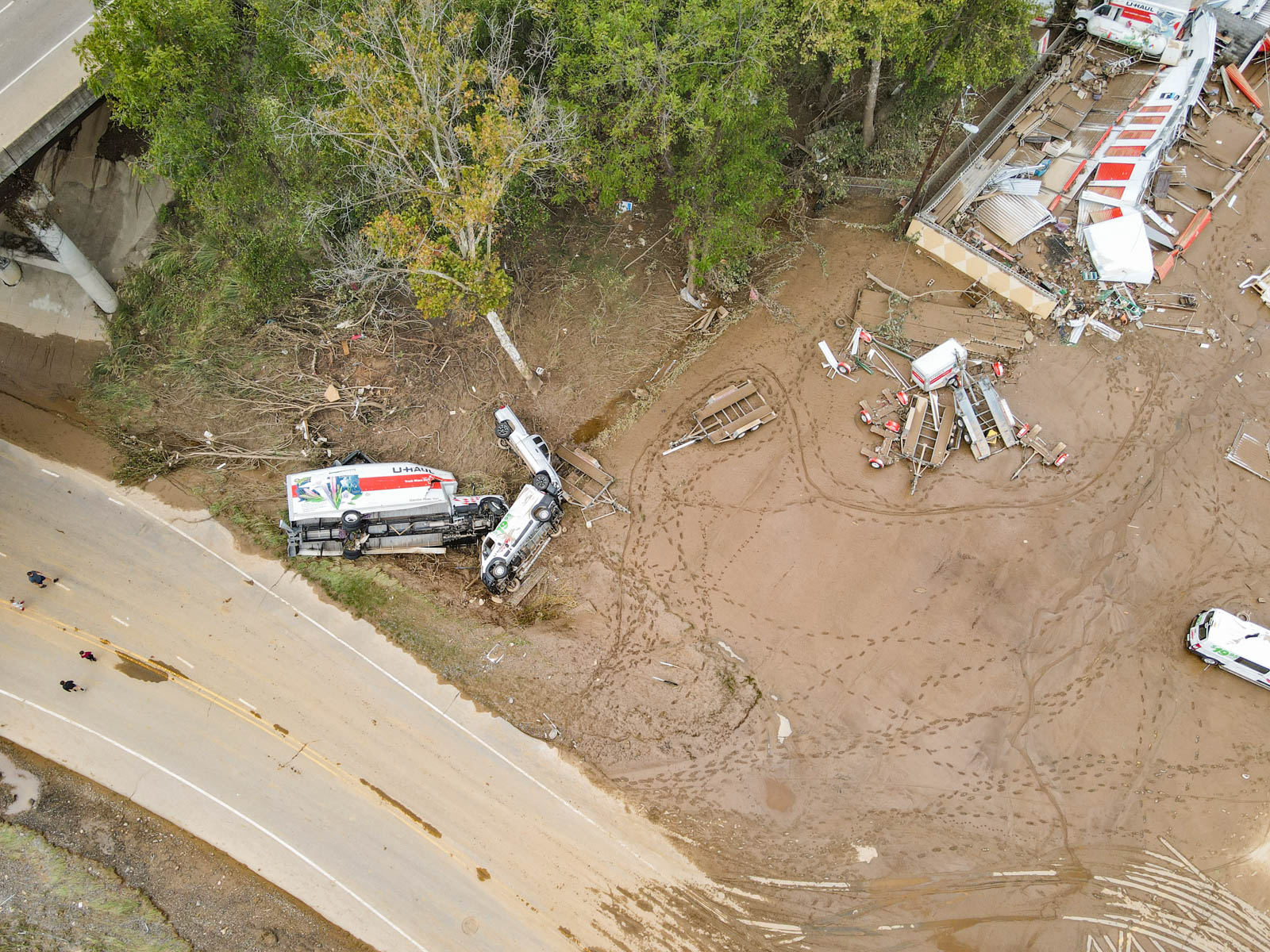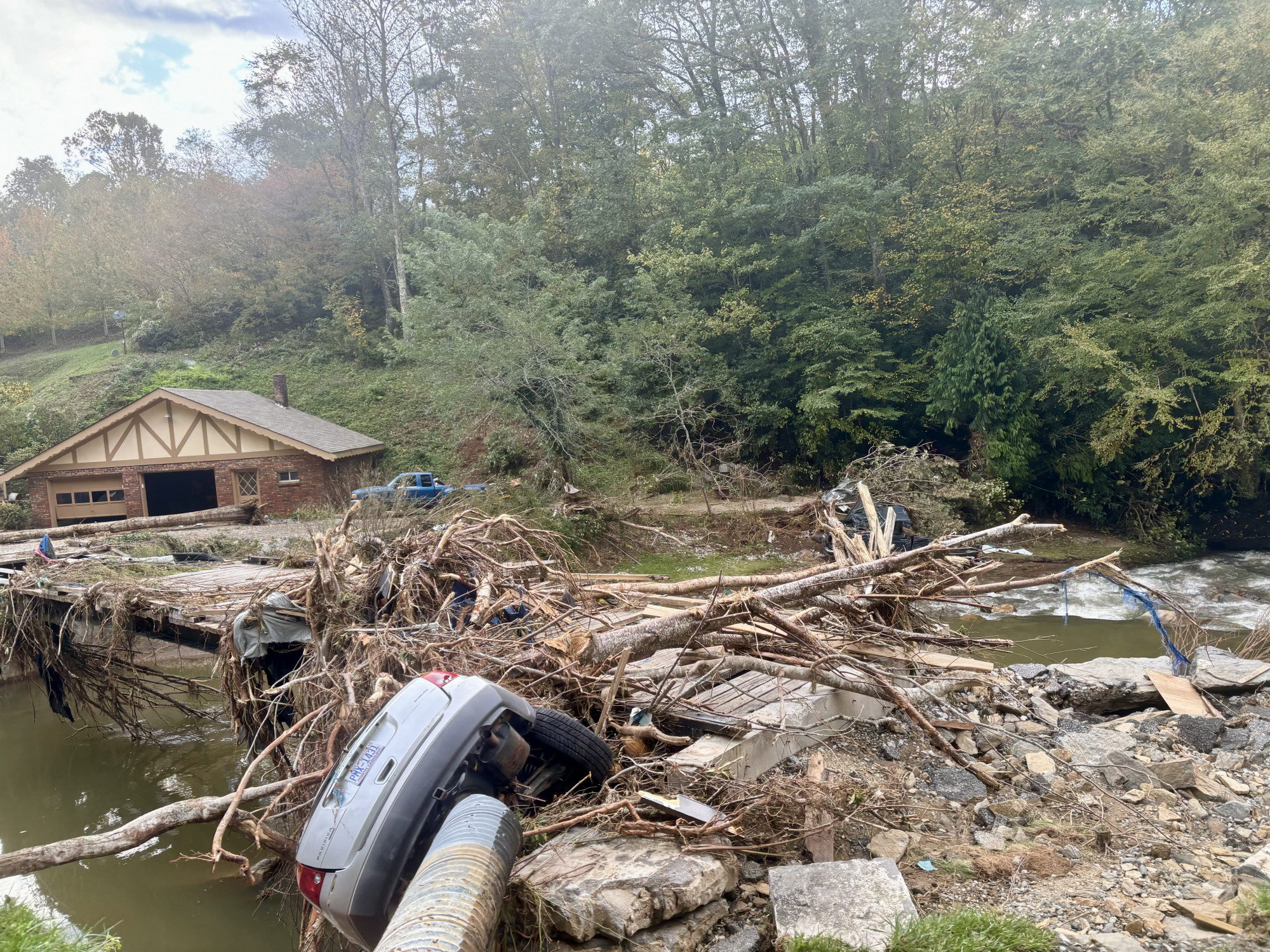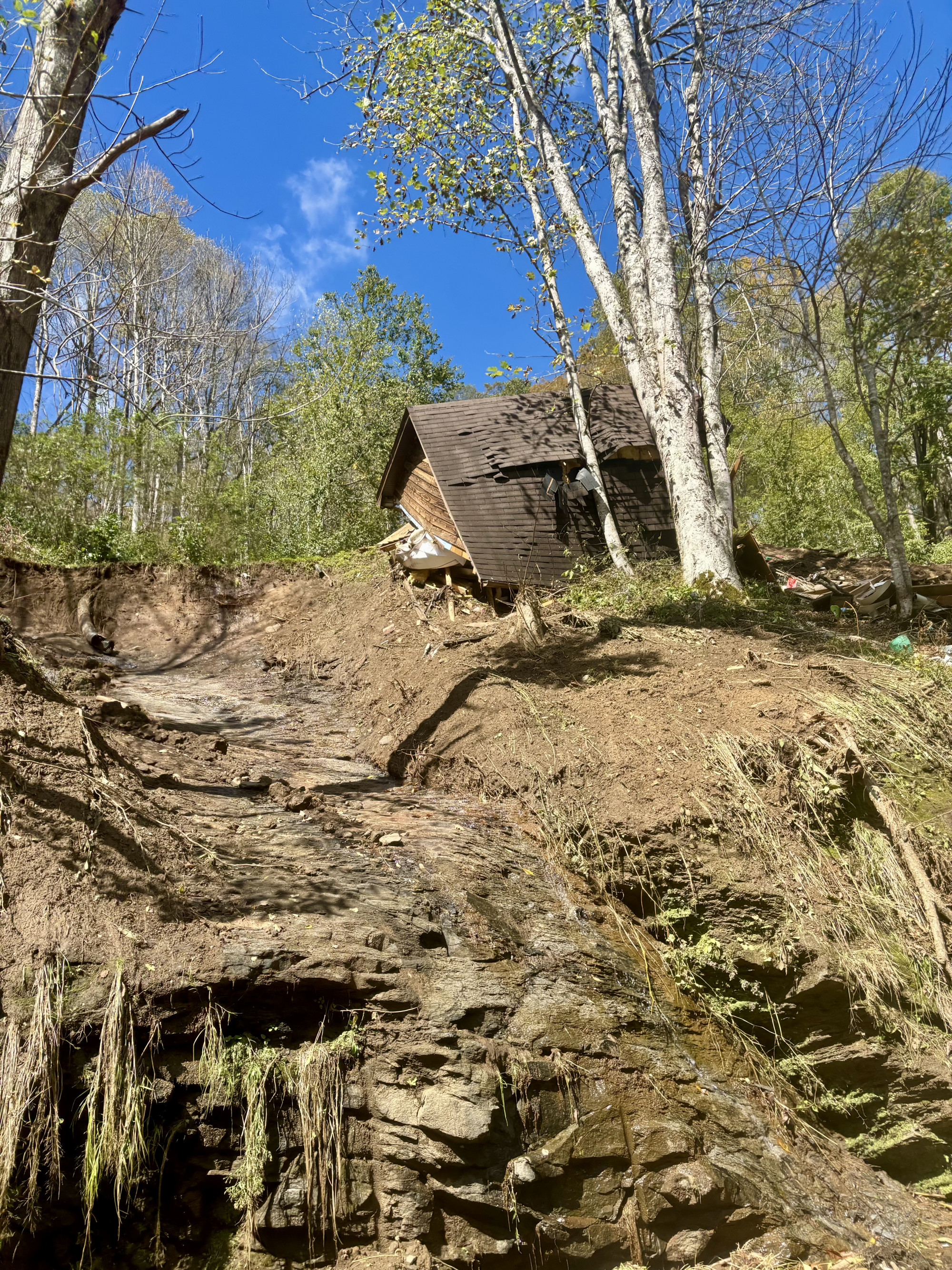After Hurricane Helene: What a Volunteer Aid Worker Sees
Small trout streams and creek beds that you could jump over had turned into rivers.
By Cole Gregson

Courtesy of North Carolina Department of Transportation
I wasn’t present for the storm. I arrived three days afterward. The weather was perfect, and from a distance, the mountains sat unchanged from their typical beauty. Birds sang and autumn leaves were beginning to fall. It was a sorrowful contrast to the devastation hidden within.
Small trout streams and creek beds that you could jump over had turned into rivers. While talking to one resident, I asked what river we were looking at in front of his home. He replied, “That’s not a river, it was just a small creek four days ago.”
Landslides cut whole sides of mountains clear off, taking sections of roads with them, leaving less than a single lane on the edge of a thousand-foot drop. Massive steel supports for bridges and culverts that were so big you could drive through them were mangled and tossed all over the roads and river banks.
Sewage had been churned up in the floodwaters, which by then had mostly receded, leaving a foul stench, especially in the valley areas.
A friend who lives in Boone got me connected to a friend of his at a fire department. The other volunteers and I were only told that they needed able-bodied people.
In the past, I lived in the Boone area. When I moved away, I continued supporting the High Country region by volunteering with the Appalachia Service Project. I intimately understand the poverty in the region and the difficulty in reaching those rural communities, even in good conditions. With this, I knew it would take a small army to efficiently reach all of those affected.

Courtesy of author
Every day has been a little different. We have primarily been in and around Banner Elk, Newland, Plumb Tree area, Minneapolis township, Green Valley, Spruce Pine, and Little Switzerland. Much of the relief efforts in the High Country are headquartered at local fire stations or churches. From there the fire crews send us volunteers out on assignments to deliver supplies to unreached back roads, hollers, and cuts, do welfare checks, and gather information on residents still stranded in their homes. We were instructed to bring chainsaws so that we could clear roads and driveways as we went.
Driving through those cuts deep in the mountains is ominous. The empty spaces are evidence of entire homes sheared from their foundations, nowhere to be seen. Mangled cars and whole bridges, twisted and deformed, dam up what used to be picturesque trout fishing streams. There are mattresses, couches, fridges, and personal effects strewn about from no discernible origin. The roads looked like ocean waves turned to stone, impassible without a high clearance truck or 4x4 vehicle.
Information is vital for the relief effort, such as residents' medical needs, what medications they depend on, how much they have in reserve, how long until they’ll need more. The circumstances of the people we came across varied widely. Some needed very little and directed us to other homes in dire need. Others were on their last bits of supplies or were desperately low on prescription medication, oxygen, and other essentials.
We entered the home of an elderly couple where all of their furniture and beds were still saturated from the flooding. The smell of mold was stifling. They didn’t want to leave and didn’t ask for much—just some tarps to wrap their mattresses. They wanted a dry surface to sleep on.
We’ve heard stories from other volunteers and emergency service personnel of coming across bodies, even whole families. When we spotted what looked like a child’s arm poking up out of a pile of debris at the bottom of a gully, I assumed the worst. Looking closer, we saw it was the carcass of someone’s pet dog, collar still intact.

Courtesy of author
This region needs sustained aid for much much longer. Even after the power is back on and the roads are accessible, there will be an enormous need for new housing and repairs to surviving homes. It will take years.
The areas and people most affected are deep in the mountains. As time goes on, these rural communities will fade back into obscurity and be forgotten—which was true long before Helene—as the tourism industry and housing developments swallow up land and resources.
I hope that we can rally behind these mountains and those good, hardy people who inhabit them. I hope we can restore the beauty here in Western North Carolina.





